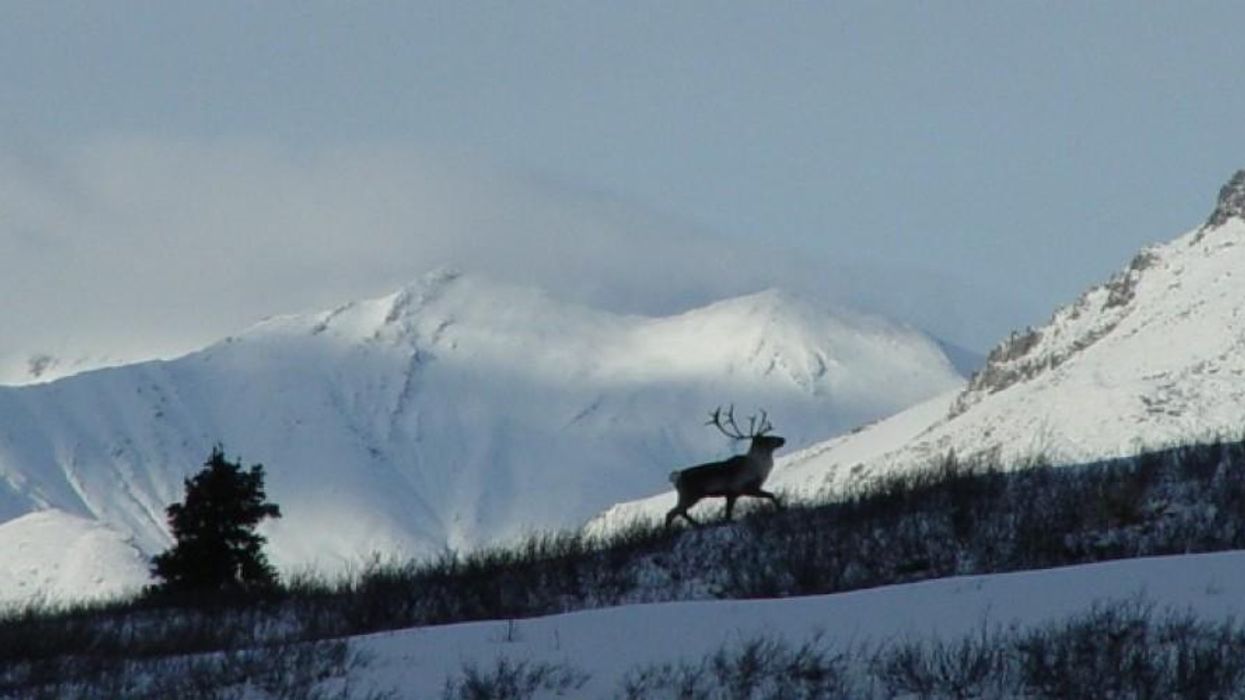A Third of the Arctic's Landmass is Now a Source of Carbon: Study
The study was published as President Donald Trump was blasted for an executive order that one critic said shows he wants to turn the Alaskan Arctic into the "the world's largest gas station."
For thousands of years, the land areas of the Arctic have served as a "carbon sink," storing potential carbon emissions in the permafrost. But according to a study published in the journal Nature Climate Change Tuesday, more than 34% of the Arctic is now a source of carbon to the atmosphere, as permafrost melts and the Arctic becomes greener.
"When emissions from fire were added, the percentage grew to 40%," according to the Woodwell Climate Research Center, which led the international team that conducted the research.
The study, which was first reported on by The Guardian, was released the day after President Donald Trump issued multiple presidential actions influencing the United States' ability to confront the climate crisis, which is primarily caused by fossil fuel emissions, including one directly impacting resource extraction in Alaska, a section of which is within the Arctic Circle.
Sue Natali, one of the researchers who worked on the study published in Nature Climate Change, toldNPR in December (in reference to similar research) that the Arctic's warming "is not an issue of what party you support."
"This is something that impacts everyone," she said.
As the permafrost—ground that remains frozen for two or more years—holds less carbon, it releases CO2 into the atmosphere that could "considerably exacerbate climate change," according to the study.
"There is a load of carbon in the Arctic soils. It's close to half of the Earth's soil carbon pool. That's much more than there is in the atmosphere. There's a huge potential reservoir that should ideally stay in the ground," said Anna Virkkala, the lead author of the study, in an interview with The Guardian.
The dire warning was released on the heels of Trump's executive order titled "Unleashing the Alaska's Extraordinary Resource Potential" that calls for expedited "permitting and leasing of energy and natural resource projects in Alaska," as well as for the prioritization of "development of Alaska's liquefied natural gas (LNG) potential, including the sale and transportation of Alaskan LNG to other regions of the United States and allied nations within the Pacific region."
The order also rolls back a number of Biden-era restrictions on drilling and extraction in Alaska, which included protecting areas within the Arctic National Wildlife Refuge from oil and gas leasing.
"Alaska is warming four times faster than the rest of the planet, a trend that is wreaking havoc on communities, ecosystems, fish, wildlife, and ways of life that depend on healthy lands and waters," said Carole Holley, managing attorney for the Alaska Office of the environmental group Earthjustice, in a statement Monday.
"Earthjustice and its clients will not stand idly by while Trump once again forces a harmful industry-driven agenda on our state for political gain and the benefit of a wealthy few," she added.
Trump wants to turn the Alaskan Arctic into the "the world's largest gas station," said Athan Manuel, director of Sierra Club's Lands Protection Program, in a statement Monday. "Make no mistake, Trump's rushed and sloppy actions today are an existential threat to these lands and waters, and the communities and wildlife that depend on them."


